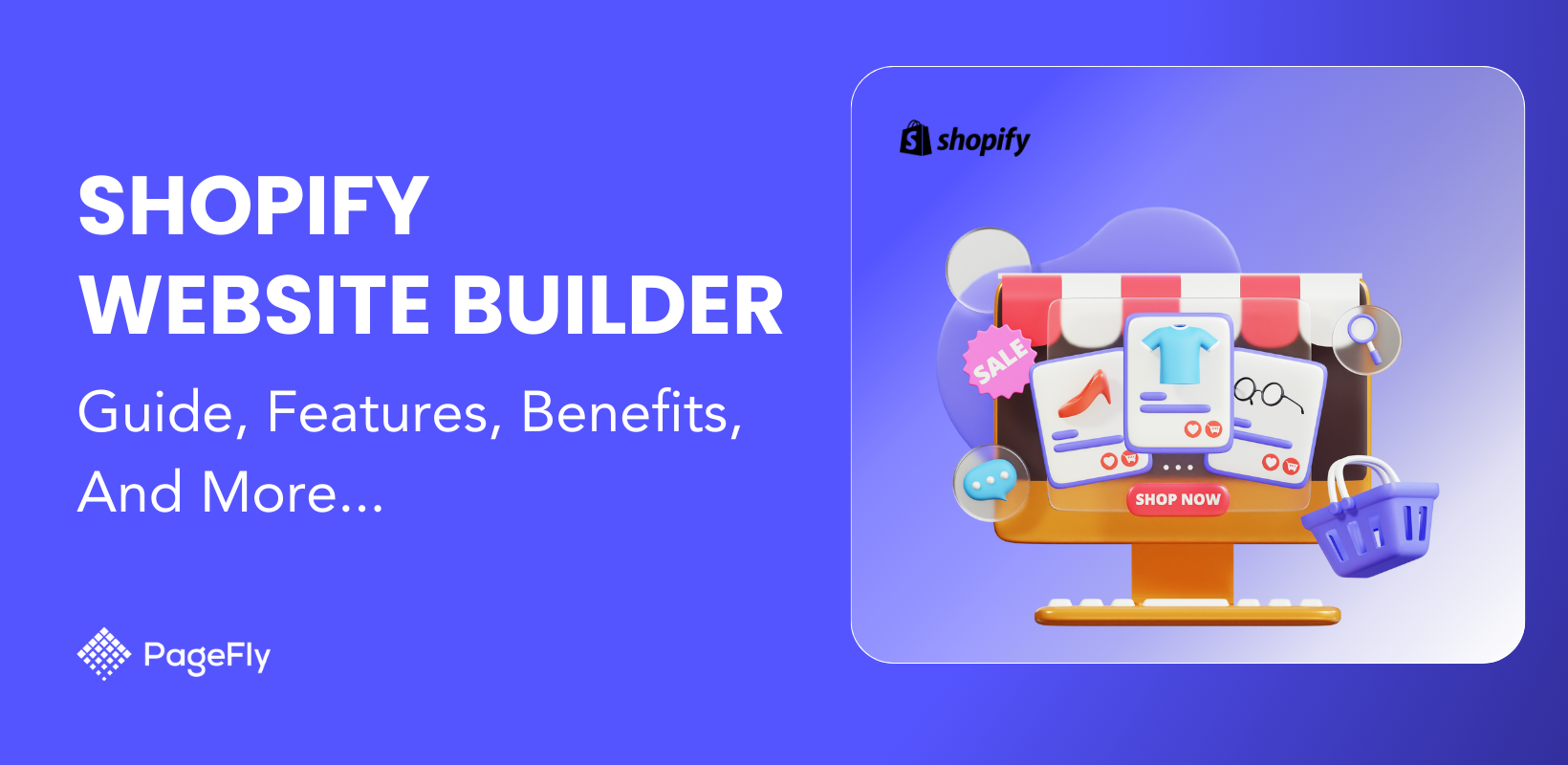WooCommerce vs Shopify is a critical topic of discussion that often comes into consideration when choosing the right platform for your online business. By understanding the key differences and migration processes between these eCommerce platforms, you can make an informed decision that pushes your online selling business to new heights.
To help you make a strategic decision, let's delve into leading you to the right choice through understanding Shopify vs WooCommerce.
WooCommerce vs Shopify: Which is the Best Platform?
In the world of continuous development of the digital market, Shopify vs WooCommerce is often a popular search when choosing the right eCommerce platform is essential to the success of your online business. Shopify and WooCommerce both offer unique features and benefits, catering to different needs and preferences of your online store.
Are you ready to migrate from Shopify to WooCommerce or would it be WooCommerce to Shopify? Let's dive into the advantages and disadvantages of each platform in different categories to help you choose the best platform for your eCommerce store.
Key Feature Differences
WooCommerce

An open-source e-commerce platform called WooCommerce is a WordPress plugin, one of the most well-liked and extensively used content management systems. It lets you create and personalize your online store within the WordPress website.
Key Features:
- Wide range of customization tools
- Control over the visual appearance of the online store
- Various types of extensions and integrations for handling various e-commerce functions
- Seamless WordPress integration
- Product management
- SEO optimization
- Mobile-friendly
- Customizable checkout
Shopify

Shopify is a subscription-based, fully hosted e-commerce platform that provides all the tools to set up and run your online store. It offers an all-inclusive e-commerce solution to manage your online store's operation and performance.
Shopify is a popular choice for companies of all sizes, especially those without significant technological experience, because of its straightforward user interface and extended support.
Key Features:
- Website creation, marketing and SEO tools
- Web hosting
- Domain Registration
- Payment processing
- Wide variety of specialized applications and interfaces
- Product management
- Mobile responsiveness
- Multi-channel selling
The primary distinction between Shopify and WooCommerce is how they approach e-commerce from a fundamental standpoint. To further understand the comparison of the two platforms, you can review the table below we made that highlights some key differences between WooCommerce and Shopify:
Feature | Shopify | WooCommerce |
Customizability | Limited customization options, more restricted platform. | Highly customizable, and flexible in design and functionalities. |
Pricing | Subscription-based, with varying pricing plans. | Free (with additional costs for hosting, plugins, etc.). |
Ease of Use | User-friendly interface, easy to set up and manage. | Requires some technical expertise and setup, suitable for users familiar with WordPress. |
Payment Options | Offers various payment gateways and its payment solution, Shopify Payments. | Supports multiple payment gateways, including integration with third-party providers without additional fees. |
Scalability | Designed for scalability, handles high traffic and large inventory. | Scales well for larger stores and supports unlimited products, but requires more technical management. |
Applications/Plugins | Integrated app store with an extensive range of apps. | Extensive library of plugins and extensions for additional functionalities, but requires technical expertise. |
SEO Capabilities | Built-in SEO features, limited control but optimized for search engine rankings. | Built on WordPress, extensive SEO features and better control over SEO practices. |
Maintenance | Handles maintenance and security aspects, server management included. | Requires regular updates, security measures, and hosting management. |
Support | 24/7 customer support via live chat, phone, and email. | Community-driven support with forums, documentation, and online resources. |
Data Ownership | Data remains on Shopify's servers, but you have access to your data. | You have complete ownership and control over your data. |
For a deeper dive into how these differences impact your e-commerce strategy, let's explore each feature in more detail below.
Ease of Use

[Source: Unsplash]
How user-friendly is each platform? Here, we explore the learning curve and overall usability of Shopify and WooCommerce, helping you determine which is more accessible for your business needs.
Shopify
Pros
- Shopify's user-friendly interface makes it easy for beginners to set up and manage their online store without technical expertise.
- Setting up a store on Shopify is relatively fast and straightforward, allowing you to start selling products quickly.
Cons
- The support for customizing and extending your Shopify store may be more limited since you are dependent on its already available online selling system.
WooCommerce
Pros
- With WooCommerce, you have complete ownership and easy-access control over your online store's data.
Cons
- WooCommerce requires a certain level of technical expertise and familiarity with WordPress, making it less beginner-friendly than Shopify.
- You are responsible for regular maintenance, updates, and security measures, such as ensuring plugin compatibility and implementing security measures.
In this case, Shopify has great points as a user-friendly e-commerce site since you don't have to manage the in-depth technical aspects of hosting and maintenance. Shopify landing page builders like PageFly makes it easier for you to build pages without any coding skills. Additionally, Ecomate, available on the Shopify App Store, helps you integrate sustainability into your Shopify store, allowing you to appeal to eco-conscious customers without any hassle.
WooCommerce, on the other hand, requires you to manage hosting and backups that need further effort and control at your end.
Pricing and Costs
In this section, we break down the pricing structures of Shopify and WooCommerce, helping you understand the costs of running an online store.
Shopify

Pros
- Shopify offers clear and structured pricing plans, making it easy for you to understand and budget for your monthly costs.
- Shopify includes hosting in its pricing plans, saving you the hassle of sourcing and managing your own hosting solution.
- Shopify provides integrated payment processing solutions, eliminating the need for third-party payment gateway integration.
- Shopify subscription plans offer unlimited bandwidth, which can be beneficial, especially for high-traffic stores.
Cons
- Users on lower subscription plans may have additional transaction fees when using external payment gateways, which can impact overall costs.
- While Shopify offers different pricing subscription plans, the monthly costs may be a recurring business expense that could add up over time.
- With the use of the Shopify App Store, some may incur additional costs, adding to the overall expenses of running your online store.
WooCommerce

Pros
- WooCommerce is an open-source platform and is free to use, which can be cost-effective, especially for businesses with a tight budget.
- You have the flexibility to choose your hosting provider, potentially allowing for cost savings based on your specific hosting needs and budget.
- WooCommerce does not charge you additional fees for using a third-party payment gateway.
- You can add as many products as you want without incurring additional fees, making it a cost-effective choice for large inventories.
Cons
- You may need to invest in paid extensions or themes for specific functionalities, which can add to the overall cost.
- Depending on the level of customization and support needed, you may incur expenses for ongoing maintenance, updates, and technical support for your WooCommerce store.
Despite the cost-effective feature WooCommerce can provide, Shopify allows you to eliminate downtime in building up your online store through its subscription perks that you can potentially gain from, especially in today's fast-changing development in the digital market.
Ecommerce Features
The features offered by an e-commerce platform can make or break your online store. We compare the core functionalities of Shopify and WooCommerce, focusing on what each platform brings to the table.
Shopify
Pros
- Shopify offers tools to help recover abandoned carts by sending automated email reminders to your customers who left items in their shopping carts.
- Shopify integrates easily with many dropshipping apps and services, simplifying inventory management and order fulfillment.
- Shopify provides tools for easy inventory tracking, managing stock levels, and organizing products efficiently.
Cons
- Shopify has certain limitations on the number of product variations that can be added, which may be restrictive for some businesses with complex product offerings.
WooCommerce
Pros
- WooCommerce offers extensive customization options, allowing you to customize your store design, product pages, and checkout process to align with your brand.
- WooCommerce allows you to create product variations, set pricing rules, and manage your inventory levels with ease, providing flexibility for your business with diverse product offerings.
- WooCommerce can scale with the growth of your business, accommodating increasing product catalogs and traffic volumes effectively.
Cons
- Setting up and managing a WooCommerce store may require a certain level of technical knowledge, particularly if you are less familiar with WordPress and e-commerce platforms.
- You may encounter compatibility issues with certain plugins or themes, which can affect the functionality and performance of your WooCommerce store.
Shopify's comprehensive e-commerce features make it a popular choice for businesses of all sizes, providing a user-friendly and scalable platform to build, manage, and grow in a streamlined and organized manner.
Themes, Design, and Customization
The design of your store is crucial for attracting and retaining customers. This section delves into the customization options, theme availability, and design flexibility offered by both platforms.
Shopify

Pros
- Shopify themes are mobile-responsive, ensuring a seamless shopping experience for customers on mobile devices.
- Shopify offers a variety of ready-to-use professionally designed themes.
- Shopify's drag-and-drop website builder and theme editor make it relatively easy for you to customize the design of your online store.
Cons
- Shopify's themes and templates offer limited customization options, making it challenging to achieve a fully unique and personalized store design.
WooCommerce

Pros
- WooCommerce offers extensive customization options, enabling you to have complete control over the design and functionality of your online store.
- The wide range of WooCommerce themes allows you to find a design that closely matches your brand.
Cons
- The number of WooCommerce themes can be overwhelming, and finding the right theme that meets all your requirements may take more time and effort.
- Extensive customizations may also increase the maintenance and update requirements for your store.
With access to vast options of themes and design, WooCommerce offers more compelling and extensive customization alternatives.
However, Shopify has PageFly that can bridge the gap by providing a user-friendly interface that simplifies complex tasks. If you’re looking to detect the best themes for their store, Shopify Theme Detector is a handy Chrome extension that helps you identify the themes used by successful Shopify stores, giving you insights into top-performing designs.
If you want to explore professionally designed themes that are optimized for sales, Blum Shopify theme is a high-quality, conversion-focused themes that can give your Shopify store an edge in design and performance.
Sales and Marketing
Effective sales and marketing tools are vital for growing your business. Here, we examine how Shopify and WooCommerce support your marketing efforts and drive sales.
Shopify
Pros
- Shopify allows you to sell on multiple channels, including social media platforms and online marketplaces, expanding the reach of your online store.
- It provides various marketing promotions such as discount codes and gift cards.
- Shopify offers you reporting and analytics features, providing you with valuable insights into your sales, customer behavior, and overall business performance.
Cons
- Although Shopify is designed for scalability, some users find it more challenging to handle big catalogs or high-traffic volumes.
- Since Shopify is heavily reliant on the Shopify ecosystem, you may have less control and flexibility over your sales and marketing strategies unlike with a self-hosted platform.
WooCommerce
Pros
- WooCommerce can handle stores of any size, making it suitable for small and large businesses.
- WooCommerce supports multiple payment gateways like PayPal, Stripe, Google Pay, Woo Payments, etc., allowing customers to choose various payment methods.
- WooCommerce provides strong SEO features and integrations, helping you optimize your store for search engines and improve visibility online.
Cons
- Additional effort and time are required to maintain your online store in terms of spreading your market on other websites or social media platforms.
The sales and marketing component of Shopify is very compact. Whether you need advanced marketing tools, inventory management solutions, or customer service integrations, Shopify's ecosystem offers wide options to tailor your online store to your specific needs.
Integrations and Add-ons
Your e-commerce platform should integrate seamlessly with other tools and services you use. We look at the range of integrations and add-ons available on Shopify and WooCommerce, highlighting their impact on store functionality.
Shopify

Pros
- Shopify has a large library of apps and themes, offering you a wide range of functionalities and customization options.
- You can access a wide variety of apps and extensions in the Shopify App Store, allowing for additional functionalities and features for your store.
- Shopify's app management system allows you to easily install, configure, and manage your apps from a single dashboard, streamlining the integration process.
Cons
- You are tied to Shopify's ecosystem and may face restrictions on certain features or integrations.
- You may become more dependent on the platform, potentially reducing your control over your online store processes.
WooCommerce
Pros
- Built on WordPress, WooCommerce seamlessly integrates with WordPress plugins, providing access to a wide range of additional features.
- You have more control over your integrations and add-ons, as you can choose and manage them according to your specific needs.
Cons
- With its wide range of plugins and extensions, integrating and managing third-party tools can be more complex since technical expertise is required.
- Integrating various plugins and tools in a WooCommerce store can sometimes lead to compatibility issues, which may require additional troubleshooting and maintenance.
Shopify's integrations and add-ons aspect is more commendable here since one of the standout features is its extensive App Store, which provides a myriad of apps and plugins to enhance the functionality of your store.
Security
In this section, we assess the security measures provided by Shopify and WooCommerce, including how each platform handles vulnerabilities for a secured shopping environment.
Shopify
Pros
- Shopify takes care of hosting and security measures, ensuring reliable performance and protection against cyber threats.
- All Shopify stores come with SSL certificates and are PCI compliant. The platform takes care of your security issues, ensuring a protected shopping experience for your customers.
- Shopify employs advanced security measures, such as two-factor authentication, secure payment gateways, and fraud detection tools, to protect your online store and customer data.
- Shopify automatically updates its platform, ensuring that your store is always running on the latest and most secure version.
Cons
- As a hosted platform, you have less control over the underlying server infrastructure and security configurations.
WooCommerce
Pros
- As a self-hosted platform, WooCommerce allows you to customize and enhance the security features of your online store, such as implementing additional security plugins or modifying server configurations.
Cons
- You need to manage your own hosting and ensure proper security measures are in place to protect your online store.
Shopify offers a more exclusive secure solution, while WooCommerce provides more customization options but requires more hands-on security management. Therefore, WooCommerce has a better level of control since it will allow you to tailor your security solutions comprehensively.
Customer Support and Community

[Source: Unsplash]
Reliable support can make a big difference when running an online store. We compare the customer service options and community support available for Shopify and WooCommerce users.
Shopify
Pros
- Shopify provides 24/7 customer support through live chat, phone, and email.
- Shopify has a comprehensive knowledge base, tutorials, and documentation that cover a wide range of topics, making it easier for you to find solutions to common problems.
- Shopify also has a large community of users and experts who can help you troubleshoot any issues.
Cons
- While Shopify offers extensive support for its core platform, the support for customizing and extending your online store may be more limited, especially if you want a complex or unique condition.
WooCommerce
Pros
- WooCommerce has a large community of users and developers, offering access to forums, tutorials, and resources for troubleshooting and support.
- You have the flexibility to seek support from a wide range of sources, including third-party developers, agencies, and online communities.
Cons
- Since WooCommerce support comes from a wide range of sources, the quality and responsiveness of the support can vary, and finding reliable and knowledgeable support can be more challenging.
- You are fully responsible for managing your own support needs and technical proficiency.
While WooCommerce offers a community-driven and flexible support ecosystem, Shopify provides a more streamlined and comprehensive customer support experience.
Shopify vs WooCommerce: Comparison Summary
In the overall consideration and by weighing the pros and cons outlined above, the choice between Shopify and WooCommerce hinges on how well each platform aligns with your business requirements and operational preferences.
However, in this fast-paced digital era where online shopping is prominent, Shopify paves the way for a strategic decision that can harmonize with your vision for a thriving online store.
Shopify's all-in-one solution is one of its primary appeals. The platform reduces the hassle of managing various services by offering hosting, security, and updates within its platform. This then allows you to concentrate on further building your brand and continuously improving customer experience.
Migrate Your Store to a New Platform
If you are considering migrating your online store to a new platform, remember to backup all your data before proceeding with the migration process to avoid any data loss during the transition. We recommend informing your customers about the migration to minimize service disruptions and disputes.
Migrate from WooCommerce to Shopify

[Source: Unsplash]
Here are the simple steps you need to follow to migrate from WooCommerce to Shopify:
- Export WooCommerce Data
- Sign Up on Shopify
- Import Data to Shopify
- Configure Your Shopify Store
- Test and Launch
Migrate from Shopify to WooCommerce

[Source: Unsplash]
Here are the simple steps you need to follow to migrate from Shopify to WooCommerce:
- Export Shopify Data
- Install WooCommerce
- Import Data to WooCommerce
- Migrate Design and Customizations
- Test and Launch
Conclusion
The choice between WooCommerce and Shopify ultimately depends on your specific requirements for your online store, preferences, and level of technical proficiency and expertise.
Shopify could be the best option if you value convenience for its ease of use, smooth setup process, and excellent customer support.
Meanwhile, if cost-effectiveness, in-depth customization, and flexibility are more important to you, WooCommerce offers opportunities for customization that allow you to build an online store that meets all your needs.
Read more: WordPress vs Shopify: Which Comes As The #1 Platform?
Woocommerce Vs Shopify FAQ
The response to this question—Is WooCommerce better than Shopify, will vary based on your specific needs in your online store. Given that WooCommerce provides more customization and flexibility, it is a good choice for those with technical expertise who prefer in-depth control over their store.
On the contrary, Shopify offers an all-in-one solution and an easy-to-use interface, which makes it perfect for non-technical users who want a straightforward approach to online selling. Conversely, it's important to evaluate your business needs and select the platform that best suits your overall objectives.
Since WooCommerce is a self-hosted plugin by WordPress, it needs more manual SEO management and configuration. You need to install and build SEO plugins to have optimization capabilities.
In contrast, the all-in-one Shopify feature of built-in SEO gives you an advantage, especially if you are not technically expert in running SEO management. Therefore, Shopify is generally more SEO-friendly than WooCommerce. In addition, Shopify also offers SEO-focused apps that can further help you without extensive configuration.












![27 Best Shopify General Stores + Complete Strategy Guide [2025]](http://pagefly.io/cdn/shop/articles/Best_Shopify_General_Stores_2f9d09f2-7c38-4da9-a495-e9f4898ddd68.jpg?v=1757271936&width=1640)





